Abz2000
Abz Iz Back!!!
- Messages
- 5,358
- Reaction score
- 589
- Gender
- Male
- Religion
- Islam
I believe it would be relevant at this stage of global enlightenment and confusion for us to do some research into some of the tactics of the pioneers and perpetrators of the current political chaos we are witnessing almost everywhere on the planet.
the best positive advice that can be given in such soul weakening confusion and doubt that can leave a person psychologically drained and physically inactive is to do our best to adhere to Allah and never to doubt in His control.
here are a few police officers attempting to discredit a gathering of old aged pensioners and peaceful demonstrators who were raising awareness of their disapproval of the actions of politicians at the g20 in toronto CANADA:
God knows how it would have unfolded had the provocateurs not been recognized as such by the union leaeder:
the reactions of the police:
LONDON
notice the line of cops less than a hunfred yards away:
notice the statements of the wiser members of the public:
another from London
notice the reaction from the british government:
LOS ANGELES U.S.A

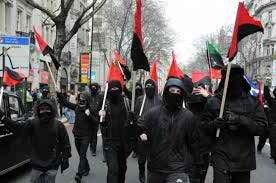
the red white and blue in it's colourful dichotomies:
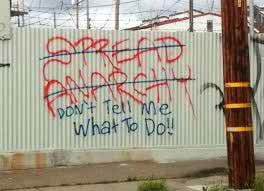

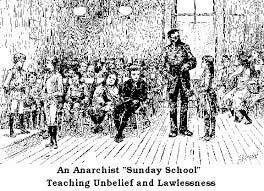
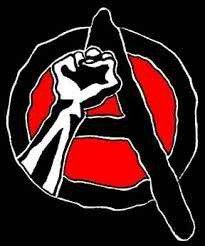
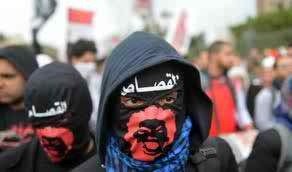
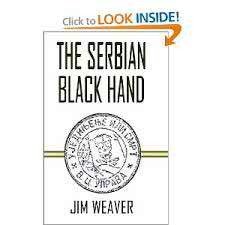
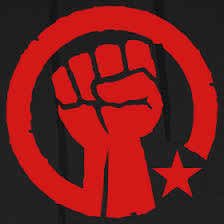

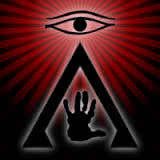

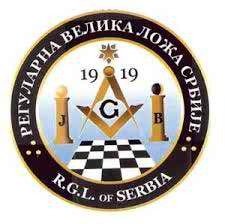
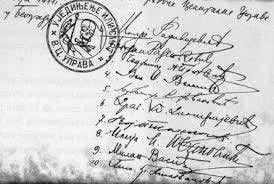
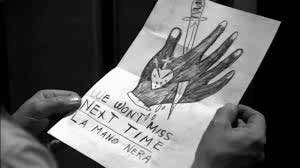
the following excerpt is from an informative book (i haven't finished reading it yet) which presents some detail into the killing of Archduke Franz Ferdinand shortly after the creation of the united states federal reseve bank (blank check bank as i prefer to call it) and the catalyzing factor used to instigate the embarking on a criminal effort to create new world order subject to the international banking system. Many people know that Ferdinand was embarking on a vision of something akin to "the united states" in europe and was very close to achieving that aim as his ailing predecessor was about to pass on the gaunlet.
the link to the book can be found here:
https://archive.org/stream/sarajevothestory010489mbp/sarajevothestory010489mbp_djvu.txt
KANSAS CITY. MO. PUBLIC LIBRARY D DDD1 D3S32P
SARAJEVO THE STORY OF A POLITICAL MURDER JEVO JOACHIM REMAK
CRITERION BOOKS, INC. NEW YORK Copyright 1959, by Joachim Remak Library of Congress Catalogue Card No. 59-6557 Manufactured in the United States of America Designed by Sidney Feinberg
.......The Emperor knew very well that times were changing, "He said/' Theodore Roosevelt recorded of an audience with him during the ex-President's world tour in 1910, "that he had been particularly interested in seeing me be- cause he was the last representative of the old system, whereas I embodied the new movement, the movement of the present and future, and that he had wished to see me so as to know how the prominent exponent of that movement thought and felt........
skip to
The Conspirators
Bomb, Crucifix^ and Dagger:
Narodna Odbrana and Ujedinjenje ill Smrt On October 8, 1908, two days after Austria's annexation of Bosnia and Herzegovina, a number of men met in Bel- grade to found a secret organization which they named the Narodna Odbrana "National Defense." Among those pres- ent or represented at the meeting were the Serbian Foreign Minister, Milovan Milovanovi<5, and a number of other ranking ministers, officials, and generals. General Bozo Jankosi of the Serbian Army, a kindly looking man with a flowing white beard, was elected president. The purpose of the Narodna Odbrana was to enlist and train partisans, for a possible war against Austria, to cany on anti-Austrian propaganda in Serbia and abroad, and to enlist reliable spies and saboteurs in the Austrian provin- ces Serbia meant to annex.
The Narodna Odbrana's work was beautifully organized and it was effective. It soon had agents in every important Bosnian locality informants, 43 44 SARAJEVO propagandists, and relay men along an underground rail- way that was used to smuggle fugitives from Bosnia into Serbia, and propaganda material, weapons, and conspira- tors from Serbia into Bosnia. In the spring of 1909, the irritated Austrians pressed the Serbian government to put a stop to these activities. Serbia, having been deserted by Russia during the annexation cri- sis, stood very much alone at that time, and the Narodna Odbrana decided to transform itself into a primarily cul- tural organization that would concentrate on education and propaganda at home rather than on espionage and violence abroad.
While the Narodna Odbrana never became the precise Serbian equivalent of a Rotary Club or a Great Books Semi- nar, it did in subsequent years largely abandon revolu- tionary action. It therefore became desirable to replace it with a new terrorist organization. The new group's charter members were ten Serbian partisan leaders and army of- ficers. Several had played a part in the Serbian revolution of 1903, when they had been among those who had forced their way into the royal palace, shot and killed King Alex- ander Obrenovi<5, Queen Draga, the queen's brothers, and a number of cabinet ministers, and proclaimed Peter Kara- georgevid the new king.
On May 9, 1911, the ten finally adopted the written statutes for a secret organization which they christened Ujedinjenje Hi Smrt, "Union or Death," but which became better known as the "Black Hand/'
Black Hand membership very soon stood at about 300, Many of the early joiners were veterans of the regicide of 1903. Most were army officers, but there also was a fair sprinkling of diplomats, lawyers, journalists, university pro- fessors, and others. By 1914, it is possible that membership was up to about 2,500. More would have joined had they The Conspirators 45 been admitted, but the Black Hand consistently chose to re- main an elite organization. This was particularly true of its operations outside Serbia, where absolute secrecy and loy- alty were essential. Total Black Hand membership in Bos- nia-Herzegovina, for example, may never have exceeded thirty.
The professed aim of the Black Hand was the creation, by means of violence, of a Greater Serbia. "This organiza- tion," read the first two articles of its statutes, "was created in order to realize the national ideal, the unification of all Serbs. . . . This organization prefers terrorist action to cultural activities; it will therefore remain secret."
To achieve its aim, the Black Hand used methods of or- ganization that combined the paraphernalia of Masonic ri- tual with the practical efficiency of a mail order catalogue.
At the bottom of the organizational pyramid was a large number of compact groups of from three to five members each. Above them were several district committees; above these a single Central Committee at Belgrade. The top of the pyramid consisted of a ten-member, policy making Cen- tral Executive Committee. Members* names were known to a very few people only; in general, groups were referred to by Roman, and individual members by Arabic code nu- merals. In those Austrian and Turkish territories which the Black Hand meant to join to Serbia, and where it operated as well as in Serbia proper, the basic group was often larger, and had more freedom of action. "Major revolutionary action, however/' the statutes prescribed, "shall be made dependent upon the approval of the Central Committee in Belgrade/'
Representatives from all of the "unredeemed territories" had a place in the Central Committee; the rep- 46 SARAJEVO resentative from Bosnia-Herzegovina was a Gadnovi<^, the panegyrist of 2eraji6
Initiation of new members took place in a darkened room, lighted by a single candle. In the center of the room stood a table covered with a black cloth, on which were dis- played a dagger, a revolver, and a crucifix. After listening to a brief speech on the Black Hand's aims and rules, and on the dangers to which anyone joining it exposed himself, each candidate was asked i he was ready to swear the initiation oath. As he replied that he was, a cloaked, masked man a member of a higher group silently entered from an adjoin- ing room. In the presence of the masked man, the candidate then pronounced the following oath:
I, ***, in joining the organization "Union or Death," swear by the Sun that warms me, by the Earth that nourishes me, before God, by the blood of my ancestors, on my honor and on my life, that I will from this moment until my death be faithful to the laws of this organization; and that I will always be ready to make any sacrifice for it. I swear before God, on my honor and on my life, that I will execute all missions and commands without question. I swear before God, on my honor and on my life, that I will take all the secrets of this organization into my grave with me. May God and my comrades in the organization be my judges if, knowingly or not, I should ever violate this oath. Afterwards the masked stranger shook hands with the novices and, still without uttering a word, left the room. Each new member then wrote out and signed a copy of the oath, which went to the Central Committee in Belgrade, and received his code number and the password or recogni- tion signal of the moment. The Conspirators 47
The Black Hand's seal was in keeping with the spirit of the oath. The center showed a clenched fist holding an un- furled flag bearing a skull and crossbones. To the left of the flag were a dagger, a bomb, and a bottle of poison. Around it ran the legend Ujedinjenje Hi Smrt "Union or Death/'
Communications between Central Committee and local groups were seldon put in writing, although sometimes a code advertisement might be placed in a reputable Belgrade daily read mostly by business people. Financing was by membership dues and by occasional collections among non- members. Discipline was maintained by having each mem- ber act as an informer "all members are obliged to ob- serve . . . the behavior of comrades known to them" and by threatening death to anyone who revealed Black Hand secrets.
The organization's principal activities were the establish- ment of a school for guerillas and saboteurs, the appoint- ment of frontier officers, and political murders. It is im- possible to say precisely how many assassinations the Black Hand sponsored.
Much information about the organization came to light at the trial of some of its leaders in 1917, but on this particular subject little has been revealed. It is prob- able, however, that the Black Hand was involved in an un- successful attempt to kill Emperor Franz Joseph in 1911, and it seems certain that in 1912 it aided in a Croat ter- rorist's gun plot against the governor of Croatia which missed the intended victim, but killed a bystander and a policeman.
The guerilla academy was established in 191 1, in an out- of-the-way village near the ancient Orthodox bishopric of Ni5. Here students, the majority of whom came from Bos- nia and Herzegovina, received instruction in shooting, bomb-throwing, bridge-blowing, espionage, and related 48 SARAJEVO skills.
Many o them had been recruited by the border officers, the most valuable single group of members, per- haps, of the Black Hand. By an arrangement between the Black Hand and the Ser- bian General Staff, there were appointed, as officers in charge of a half dozen crucial border stations facing Austria and Turkey, Black Hand members who, in addition to their more conventional duties, were entrusted with espionage and subversion.
To the War Ministry, these frontier officers were responsible for co-ordinating espionage activities in those sections of Austrian and Turkish territory that lay across their respective posts.
To the Black Hand, they were responsible for sponsoring and organizing revolutionary activities in the same areas, and for serving as links in the underground railway originally established by the Narodna Odbrana, and now taken over by the Black Hand. Other things which the Black Hand borrowed from the Narodna Odbrana were its prestige and name. The frontier officers did nothing to counteract the general assumption that the group they were secretly representing was the Narodna Odbrana, and with few exceptions enrolled their collaborators across the border in that organization rather than in the Black Hand. It all worked out to a neat bit of camouflage. Should an agent be caught, the Austrian police might possibly make him admit a connection with the Narodna Odbrana, but he would be unable to say anything about the Black Hand, since he was quite genuinely ignorant of its existence. The Austrians, who had found out a good deal about the activi- ties of the Narodna Odbrana, thus knew next to nothing about those of the Black Hand, and mistakenly continued to attribute most of the subversion in Bosnia to the older organization.
i. Archduke Franz Ferdinand of Austria- Este with his wife, Sophie, Duchess oi Hohenberg, and their three children: Maximillian, Ernst, and Sophie. Franz Ferdinand
3. Franz Joseph I, Emperor of Austria and Apostolic King of Hungary. A photo- graph taken in 1916, the year of the Em- peror's death at the age of 86.
4. Nicola Pasic, Minister of Serbia Prime
5. Colonel Dragutin Di- mitrijevic", called Apis (>. General Oskar Poti- orek, Governor of Bosnia and Herzegovina. 1 Photogrnphie du module d'une catte d ItSgilimatlon.
7. A Black Hand document: "Identification (Original) The Central Executive Committee of the Organization Union or Death hereby delegates its member No, 1873 with organizing a local committee in Paris, France, in the spirit of the constitution and rules of procedure of the organization. Results to be reported to the Central Executive Committee through the familiar channels." On the rubber stamp, to the left of the clenched fist holding the flag with a skull and crossbones, note the bomb, the dagger, and the poison bottle. The in- scription around it reads: "Union or Death -Central Executive Committee."
The Conspirators 49
The Belgrade government was in a far better position to know, despite the secrecy that surrounded the Black Hand even in Serbia. At first, there was close cooperation between government and Black Hand. Black Hand members held important positions in army and civil service; the Crown Prince, Alexander, reportedly gave the new organization 26,000 dinars toward starting a newspaper, The Piemont; and members of the Black Hand's Central Executive Com- mittee took care to inform selected cabinet members of any major decisions they had taken. Later, relations cooled and even became hostile. Prince Alexander lost much of his en- thusiasm when, despite his cash contribution, the Black Hand refused him a position of leadership. More impor- tant, in 1914, the government, then headed by Nikola Pasi, engaged in a drawn-out, bitter power struggle with the Black Hand over the question of whether civilian or mili- tary control was to have priority in the territories Serbia had annexed during the Balkan Wars. Despite such friction, the government continued to be rather well informed about what went on in the Black Hand. One likely reason for this was that one of the or- ganization's more trusted members, a man named Milan Ciganovid he was to play a major role in the Sarajevo plot very probably was a personal agent of Pasi, and had joined the organization primarily to keep the Prime Min- ister informed of its doings. Apis Thirty-seven years of age in 1914, heavy-set and quite bald, with an elegantly upswept moustache and the pleas- antest of manners, Colonel Dragutin Dimitrijevi was the 50 SARAJEVO Chief of the Intelligence Department in the Serbian Gen- eral Staff, and the moving spirit behind the Black Hand. His background and education were the customary ones for the professional army officer: lycee in Belgrade, then, at eighteen, the Military Academy. He was a popular student and a brilliant one. He also displayed so much restless activity that his fellow-students at the lycee amicably nick- named him Apis the Bee a name that stuck to him for the remainder of his life. He graduated from the Military Academy with such an outstanding record that he went directly into the General Staff. Even in his youth, Apis was an ardent patriot. To help achieve Serbian greatness, he became a specialist in revolu- tion, conspiracy, and assassination. He was, quite possibly, the foremost European expert in regicide of his time. He acquired this skill by much experiment and experi- ence. His first effort was still quite clumsy and probably doomed to fail from the start.
In 1901, a number of young Serbian officers undertook to remove the autocratic and un- popular King Alexander and his wife Draga, a woman with a dubious past. The plan Apis worked out called for doing the killing at the Queen's Birthday Ball. A few of the of- ficers were to seize Belgrade's two power plants and to shut off the electricity. The others were to attend the Ball, and at the moment the lights went off were to set fire to the curtains, sound a fire alarm, and poison the royal couple during the ensuing confusion. The poison was secured and successfully tested on a cat; everything else, however, went wrong. The power stations turned out to be so well guarded that the officers could not force their way in. Moreover, the king and queen failed to appear at the ball. His first setback apparently did not disconcert Apis too The Conspirators 51 badly, and in the course of pursuing the murder scheme he learned the value of binding conspirators together by fear as well as by common motive. In the winter of 1902, he drafted the following oath, which all the less cautious mem- bers of the group readily signed: Anticipating certain collapse of the state if the existing situation continues for even the shortest time, and blaming for this primarily the King and his paramour Draga Masin, we swear that we shall murder them and to that effect affix our signatures. In place of these dishonorable individuals, we shall bring to the Serbian throne Peter Karageorgevi, grandson of the Leader [a reference to Kara George, the leader of the first Serbian revolt against the Turks in 1804], and the legitimate son of Prince Alexander Karageorgevid. In the spring of 1903, amid indications that the police had discovered the plot, Apis, with the knowledge of one other officer only, destroyed the document. He did not tell anyone else what he had done, so that the other conspir- ators continued to feel endangered and thus firmly bound by an oath that in reality no longer existed. Later that year, in June, some of the group stormed the royal palace under cover of night, after much hectic search- ing found the king and queen, who had been hiding in an alcove behind a secret door of their bedroom, shot them and threw their naked and bloody bodies from the bed- room window into the garden below. In town, the remain- ing conspirators sought out and killed the others on their liquidation list. Early in the foray, Apis had thrown him- self at the palace guard, who opened fire and left him badly wounded. He eventually recovered, but three bullets left from the encounter were never removed from his body. The new dynasty was grateful to Apis, then a Captain, 52 SARAJEVO and to his fellow conspirators.
Parliament thanked him for what he had done, calling him "the savior of the father- land." Promotions, however, did not come unusually fast for so outstanding an officer as Dimitrijevi^ was. One reason may have been that he was as critical of the new regime as he was unwilling to give up his secret position of power. Apis was held in great regard by his fellow-officers, and, having been appointed Professor of Tactics at the Military Academy, in addition to his general-staff duties, he exercised a profound influence over a large number of students as well. In the years that followed the coup of 1903, Apis, al- ways careful to keep to the background, became a leader in the fight for army reforms, against corruption in govern- ment, and for a Greater Serbia. "Although there was no- thing despotic about him, his suggestions and wishes were treated as commands/* a friend of his has written since, "One saw him nowhere, yet one knew that he was doing everything. . . . There was no minister of war who did not have the feeling of having another, invisible minister next to him." Trips to Germany and Russia taught Apis some new military ideas, and when the Balkan Wars of 1912 and 1913 broke out, the Serbian army's victories owed much to the strategy he had planned. He himself could take no active part in the fighting. Disguised as a simple partisan, he had, just before the beginning of the First Balkan War, made his way into Turkish territory and won over the most powerful of Albanian chieftains to the Serbian cause. He returned from this exploit gravely ill. For a while, his condition was critical. After a specialist was called in from Berlin and diagnosed his disease as Maltese fever, a rare and painful illness, he slowly improved, but he was still far too ill to lead any troops.
In June, 1913, when he had quite recov- The Conspirators 53 ered, he was appointed head of Serbian Intelligence. One of his first acts was to organize a very superior espionage serv- ice in Austria-Hungary. His increasing military responsibilities did not cause Apis to abandon conspiracy and violence. Among other plots, he sent a young enthusiast to Vienna to try his hand at killing Emperor Franz Joseph in 1911, three years later agreed with a Bulgarian revolutionary group to the assas- sination of Ferdinand of Bulgaria, and during the World War formulated a plot against the King of Greece. Apis* principal instrument for the organization of polit- ical terror was the Black Hand. He had been charter mem- ber number six, and, although nominally he was never any- thing but one among ten on the Central Executive Com- mittee, he very soon became its true leader. Partly this was due to the high rate of attrition among the organization's leadership; of the ten charter members, three died in the Balkan Wars, and one left Belgrade to serve at the Serbian Legation in Athens. But to a much larger degree it was Apis* personal qualities which made him the Black Hand's life and soul. Personal magnetism, great intelligence, and utter discre- tion combined to make Apis a wonderful organizer of what- ever intrigue he happened to be pursuing at the moment. Brave, incorruptible, modest, vastly patriotic, and totally ruthless, he reminds one of a number of other leaders Eu- rope, and more recently the Middle East, have seen since the French Revolution. It is a line that begins with Robes- pierre and ends, for the time being, with Colonel Nassar. Apis* weakness aside from his conviction that patriotic aims left no room for moral scruples was that for all his immediate political skill, he knew little about the world 54 SARAJEVO outside Serbia, and that he had no real sense for what was politically feasible and what, in the long run, was not.
Apis Plans A Murder
The exact dates and circumstances of how Franz Ferdi- nand's murder was planned although not the motives, for those are very plain indeed have never been estab- lished with absolute certainty, and probably never will be. The plot's surviving participants have either kept silent or told stories widely at variance with one another, and a writ- ten confession left by Apis himself (which was suppressed by a succession of Belgrade governments until its release by Tito's in 1953) is plainly a mixture of truth and untruth. The following account, therefore, can claim no more than that it is based on the most likely among several stories and on the testimony of the more credible among the witnesses, and must remain open to some amount of doubt.
the best positive advice that can be given in such soul weakening confusion and doubt that can leave a person psychologically drained and physically inactive is to do our best to adhere to Allah and never to doubt in His control.
here are a few police officers attempting to discredit a gathering of old aged pensioners and peaceful demonstrators who were raising awareness of their disapproval of the actions of politicians at the g20 in toronto CANADA:
God knows how it would have unfolded had the provocateurs not been recognized as such by the union leaeder:
the reactions of the police:
LONDON
notice the line of cops less than a hunfred yards away:
notice the statements of the wiser members of the public:
another from London
notice the reaction from the british government:
LOS ANGELES U.S.A


the red white and blue in it's colourful dichotomies:













the following excerpt is from an informative book (i haven't finished reading it yet) which presents some detail into the killing of Archduke Franz Ferdinand shortly after the creation of the united states federal reseve bank (blank check bank as i prefer to call it) and the catalyzing factor used to instigate the embarking on a criminal effort to create new world order subject to the international banking system. Many people know that Ferdinand was embarking on a vision of something akin to "the united states" in europe and was very close to achieving that aim as his ailing predecessor was about to pass on the gaunlet.
the link to the book can be found here:
https://archive.org/stream/sarajevothestory010489mbp/sarajevothestory010489mbp_djvu.txt
KANSAS CITY. MO. PUBLIC LIBRARY D DDD1 D3S32P
SARAJEVO THE STORY OF A POLITICAL MURDER JEVO JOACHIM REMAK
CRITERION BOOKS, INC. NEW YORK Copyright 1959, by Joachim Remak Library of Congress Catalogue Card No. 59-6557 Manufactured in the United States of America Designed by Sidney Feinberg
.......The Emperor knew very well that times were changing, "He said/' Theodore Roosevelt recorded of an audience with him during the ex-President's world tour in 1910, "that he had been particularly interested in seeing me be- cause he was the last representative of the old system, whereas I embodied the new movement, the movement of the present and future, and that he had wished to see me so as to know how the prominent exponent of that movement thought and felt........
skip to
The Conspirators
Bomb, Crucifix^ and Dagger:
Narodna Odbrana and Ujedinjenje ill Smrt On October 8, 1908, two days after Austria's annexation of Bosnia and Herzegovina, a number of men met in Bel- grade to found a secret organization which they named the Narodna Odbrana "National Defense." Among those pres- ent or represented at the meeting were the Serbian Foreign Minister, Milovan Milovanovi<5, and a number of other ranking ministers, officials, and generals. General Bozo Jankosi of the Serbian Army, a kindly looking man with a flowing white beard, was elected president. The purpose of the Narodna Odbrana was to enlist and train partisans, for a possible war against Austria, to cany on anti-Austrian propaganda in Serbia and abroad, and to enlist reliable spies and saboteurs in the Austrian provin- ces Serbia meant to annex.
The Narodna Odbrana's work was beautifully organized and it was effective. It soon had agents in every important Bosnian locality informants, 43 44 SARAJEVO propagandists, and relay men along an underground rail- way that was used to smuggle fugitives from Bosnia into Serbia, and propaganda material, weapons, and conspira- tors from Serbia into Bosnia. In the spring of 1909, the irritated Austrians pressed the Serbian government to put a stop to these activities. Serbia, having been deserted by Russia during the annexation cri- sis, stood very much alone at that time, and the Narodna Odbrana decided to transform itself into a primarily cul- tural organization that would concentrate on education and propaganda at home rather than on espionage and violence abroad.
While the Narodna Odbrana never became the precise Serbian equivalent of a Rotary Club or a Great Books Semi- nar, it did in subsequent years largely abandon revolu- tionary action. It therefore became desirable to replace it with a new terrorist organization. The new group's charter members were ten Serbian partisan leaders and army of- ficers. Several had played a part in the Serbian revolution of 1903, when they had been among those who had forced their way into the royal palace, shot and killed King Alex- ander Obrenovi<5, Queen Draga, the queen's brothers, and a number of cabinet ministers, and proclaimed Peter Kara- georgevid the new king.
On May 9, 1911, the ten finally adopted the written statutes for a secret organization which they christened Ujedinjenje Hi Smrt, "Union or Death," but which became better known as the "Black Hand/'
Black Hand membership very soon stood at about 300, Many of the early joiners were veterans of the regicide of 1903. Most were army officers, but there also was a fair sprinkling of diplomats, lawyers, journalists, university pro- fessors, and others. By 1914, it is possible that membership was up to about 2,500. More would have joined had they The Conspirators 45 been admitted, but the Black Hand consistently chose to re- main an elite organization. This was particularly true of its operations outside Serbia, where absolute secrecy and loy- alty were essential. Total Black Hand membership in Bos- nia-Herzegovina, for example, may never have exceeded thirty.
The professed aim of the Black Hand was the creation, by means of violence, of a Greater Serbia. "This organiza- tion," read the first two articles of its statutes, "was created in order to realize the national ideal, the unification of all Serbs. . . . This organization prefers terrorist action to cultural activities; it will therefore remain secret."
To achieve its aim, the Black Hand used methods of or- ganization that combined the paraphernalia of Masonic ri- tual with the practical efficiency of a mail order catalogue.
At the bottom of the organizational pyramid was a large number of compact groups of from three to five members each. Above them were several district committees; above these a single Central Committee at Belgrade. The top of the pyramid consisted of a ten-member, policy making Cen- tral Executive Committee. Members* names were known to a very few people only; in general, groups were referred to by Roman, and individual members by Arabic code nu- merals. In those Austrian and Turkish territories which the Black Hand meant to join to Serbia, and where it operated as well as in Serbia proper, the basic group was often larger, and had more freedom of action. "Major revolutionary action, however/' the statutes prescribed, "shall be made dependent upon the approval of the Central Committee in Belgrade/'
Representatives from all of the "unredeemed territories" had a place in the Central Committee; the rep- 46 SARAJEVO resentative from Bosnia-Herzegovina was a Gadnovi<^, the panegyrist of 2eraji6
Initiation of new members took place in a darkened room, lighted by a single candle. In the center of the room stood a table covered with a black cloth, on which were dis- played a dagger, a revolver, and a crucifix. After listening to a brief speech on the Black Hand's aims and rules, and on the dangers to which anyone joining it exposed himself, each candidate was asked i he was ready to swear the initiation oath. As he replied that he was, a cloaked, masked man a member of a higher group silently entered from an adjoin- ing room. In the presence of the masked man, the candidate then pronounced the following oath:
I, ***, in joining the organization "Union or Death," swear by the Sun that warms me, by the Earth that nourishes me, before God, by the blood of my ancestors, on my honor and on my life, that I will from this moment until my death be faithful to the laws of this organization; and that I will always be ready to make any sacrifice for it. I swear before God, on my honor and on my life, that I will execute all missions and commands without question. I swear before God, on my honor and on my life, that I will take all the secrets of this organization into my grave with me. May God and my comrades in the organization be my judges if, knowingly or not, I should ever violate this oath. Afterwards the masked stranger shook hands with the novices and, still without uttering a word, left the room. Each new member then wrote out and signed a copy of the oath, which went to the Central Committee in Belgrade, and received his code number and the password or recogni- tion signal of the moment. The Conspirators 47
The Black Hand's seal was in keeping with the spirit of the oath. The center showed a clenched fist holding an un- furled flag bearing a skull and crossbones. To the left of the flag were a dagger, a bomb, and a bottle of poison. Around it ran the legend Ujedinjenje Hi Smrt "Union or Death/'
Communications between Central Committee and local groups were seldon put in writing, although sometimes a code advertisement might be placed in a reputable Belgrade daily read mostly by business people. Financing was by membership dues and by occasional collections among non- members. Discipline was maintained by having each mem- ber act as an informer "all members are obliged to ob- serve . . . the behavior of comrades known to them" and by threatening death to anyone who revealed Black Hand secrets.
The organization's principal activities were the establish- ment of a school for guerillas and saboteurs, the appoint- ment of frontier officers, and political murders. It is im- possible to say precisely how many assassinations the Black Hand sponsored.
Much information about the organization came to light at the trial of some of its leaders in 1917, but on this particular subject little has been revealed. It is prob- able, however, that the Black Hand was involved in an un- successful attempt to kill Emperor Franz Joseph in 1911, and it seems certain that in 1912 it aided in a Croat ter- rorist's gun plot against the governor of Croatia which missed the intended victim, but killed a bystander and a policeman.
The guerilla academy was established in 191 1, in an out- of-the-way village near the ancient Orthodox bishopric of Ni5. Here students, the majority of whom came from Bos- nia and Herzegovina, received instruction in shooting, bomb-throwing, bridge-blowing, espionage, and related 48 SARAJEVO skills.
Many o them had been recruited by the border officers, the most valuable single group of members, per- haps, of the Black Hand. By an arrangement between the Black Hand and the Ser- bian General Staff, there were appointed, as officers in charge of a half dozen crucial border stations facing Austria and Turkey, Black Hand members who, in addition to their more conventional duties, were entrusted with espionage and subversion.
To the War Ministry, these frontier officers were responsible for co-ordinating espionage activities in those sections of Austrian and Turkish territory that lay across their respective posts.
To the Black Hand, they were responsible for sponsoring and organizing revolutionary activities in the same areas, and for serving as links in the underground railway originally established by the Narodna Odbrana, and now taken over by the Black Hand. Other things which the Black Hand borrowed from the Narodna Odbrana were its prestige and name. The frontier officers did nothing to counteract the general assumption that the group they were secretly representing was the Narodna Odbrana, and with few exceptions enrolled their collaborators across the border in that organization rather than in the Black Hand. It all worked out to a neat bit of camouflage. Should an agent be caught, the Austrian police might possibly make him admit a connection with the Narodna Odbrana, but he would be unable to say anything about the Black Hand, since he was quite genuinely ignorant of its existence. The Austrians, who had found out a good deal about the activi- ties of the Narodna Odbrana, thus knew next to nothing about those of the Black Hand, and mistakenly continued to attribute most of the subversion in Bosnia to the older organization.
i. Archduke Franz Ferdinand of Austria- Este with his wife, Sophie, Duchess oi Hohenberg, and their three children: Maximillian, Ernst, and Sophie. Franz Ferdinand
3. Franz Joseph I, Emperor of Austria and Apostolic King of Hungary. A photo- graph taken in 1916, the year of the Em- peror's death at the age of 86.
4. Nicola Pasic, Minister of Serbia Prime
5. Colonel Dragutin Di- mitrijevic", called Apis (>. General Oskar Poti- orek, Governor of Bosnia and Herzegovina. 1 Photogrnphie du module d'une catte d ItSgilimatlon.
7. A Black Hand document: "Identification (Original) The Central Executive Committee of the Organization Union or Death hereby delegates its member No, 1873 with organizing a local committee in Paris, France, in the spirit of the constitution and rules of procedure of the organization. Results to be reported to the Central Executive Committee through the familiar channels." On the rubber stamp, to the left of the clenched fist holding the flag with a skull and crossbones, note the bomb, the dagger, and the poison bottle. The in- scription around it reads: "Union or Death -Central Executive Committee."
The Conspirators 49
The Belgrade government was in a far better position to know, despite the secrecy that surrounded the Black Hand even in Serbia. At first, there was close cooperation between government and Black Hand. Black Hand members held important positions in army and civil service; the Crown Prince, Alexander, reportedly gave the new organization 26,000 dinars toward starting a newspaper, The Piemont; and members of the Black Hand's Central Executive Com- mittee took care to inform selected cabinet members of any major decisions they had taken. Later, relations cooled and even became hostile. Prince Alexander lost much of his en- thusiasm when, despite his cash contribution, the Black Hand refused him a position of leadership. More impor- tant, in 1914, the government, then headed by Nikola Pasi, engaged in a drawn-out, bitter power struggle with the Black Hand over the question of whether civilian or mili- tary control was to have priority in the territories Serbia had annexed during the Balkan Wars. Despite such friction, the government continued to be rather well informed about what went on in the Black Hand. One likely reason for this was that one of the or- ganization's more trusted members, a man named Milan Ciganovid he was to play a major role in the Sarajevo plot very probably was a personal agent of Pasi, and had joined the organization primarily to keep the Prime Min- ister informed of its doings. Apis Thirty-seven years of age in 1914, heavy-set and quite bald, with an elegantly upswept moustache and the pleas- antest of manners, Colonel Dragutin Dimitrijevi was the 50 SARAJEVO Chief of the Intelligence Department in the Serbian Gen- eral Staff, and the moving spirit behind the Black Hand. His background and education were the customary ones for the professional army officer: lycee in Belgrade, then, at eighteen, the Military Academy. He was a popular student and a brilliant one. He also displayed so much restless activity that his fellow-students at the lycee amicably nick- named him Apis the Bee a name that stuck to him for the remainder of his life. He graduated from the Military Academy with such an outstanding record that he went directly into the General Staff. Even in his youth, Apis was an ardent patriot. To help achieve Serbian greatness, he became a specialist in revolu- tion, conspiracy, and assassination. He was, quite possibly, the foremost European expert in regicide of his time. He acquired this skill by much experiment and experi- ence. His first effort was still quite clumsy and probably doomed to fail from the start.
In 1901, a number of young Serbian officers undertook to remove the autocratic and un- popular King Alexander and his wife Draga, a woman with a dubious past. The plan Apis worked out called for doing the killing at the Queen's Birthday Ball. A few of the of- ficers were to seize Belgrade's two power plants and to shut off the electricity. The others were to attend the Ball, and at the moment the lights went off were to set fire to the curtains, sound a fire alarm, and poison the royal couple during the ensuing confusion. The poison was secured and successfully tested on a cat; everything else, however, went wrong. The power stations turned out to be so well guarded that the officers could not force their way in. Moreover, the king and queen failed to appear at the ball. His first setback apparently did not disconcert Apis too The Conspirators 51 badly, and in the course of pursuing the murder scheme he learned the value of binding conspirators together by fear as well as by common motive. In the winter of 1902, he drafted the following oath, which all the less cautious mem- bers of the group readily signed: Anticipating certain collapse of the state if the existing situation continues for even the shortest time, and blaming for this primarily the King and his paramour Draga Masin, we swear that we shall murder them and to that effect affix our signatures. In place of these dishonorable individuals, we shall bring to the Serbian throne Peter Karageorgevi, grandson of the Leader [a reference to Kara George, the leader of the first Serbian revolt against the Turks in 1804], and the legitimate son of Prince Alexander Karageorgevid. In the spring of 1903, amid indications that the police had discovered the plot, Apis, with the knowledge of one other officer only, destroyed the document. He did not tell anyone else what he had done, so that the other conspir- ators continued to feel endangered and thus firmly bound by an oath that in reality no longer existed. Later that year, in June, some of the group stormed the royal palace under cover of night, after much hectic search- ing found the king and queen, who had been hiding in an alcove behind a secret door of their bedroom, shot them and threw their naked and bloody bodies from the bed- room window into the garden below. In town, the remain- ing conspirators sought out and killed the others on their liquidation list. Early in the foray, Apis had thrown him- self at the palace guard, who opened fire and left him badly wounded. He eventually recovered, but three bullets left from the encounter were never removed from his body. The new dynasty was grateful to Apis, then a Captain, 52 SARAJEVO and to his fellow conspirators.
Parliament thanked him for what he had done, calling him "the savior of the father- land." Promotions, however, did not come unusually fast for so outstanding an officer as Dimitrijevi^ was. One reason may have been that he was as critical of the new regime as he was unwilling to give up his secret position of power. Apis was held in great regard by his fellow-officers, and, having been appointed Professor of Tactics at the Military Academy, in addition to his general-staff duties, he exercised a profound influence over a large number of students as well. In the years that followed the coup of 1903, Apis, al- ways careful to keep to the background, became a leader in the fight for army reforms, against corruption in govern- ment, and for a Greater Serbia. "Although there was no- thing despotic about him, his suggestions and wishes were treated as commands/* a friend of his has written since, "One saw him nowhere, yet one knew that he was doing everything. . . . There was no minister of war who did not have the feeling of having another, invisible minister next to him." Trips to Germany and Russia taught Apis some new military ideas, and when the Balkan Wars of 1912 and 1913 broke out, the Serbian army's victories owed much to the strategy he had planned. He himself could take no active part in the fighting. Disguised as a simple partisan, he had, just before the beginning of the First Balkan War, made his way into Turkish territory and won over the most powerful of Albanian chieftains to the Serbian cause. He returned from this exploit gravely ill. For a while, his condition was critical. After a specialist was called in from Berlin and diagnosed his disease as Maltese fever, a rare and painful illness, he slowly improved, but he was still far too ill to lead any troops.
In June, 1913, when he had quite recov- The Conspirators 53 ered, he was appointed head of Serbian Intelligence. One of his first acts was to organize a very superior espionage serv- ice in Austria-Hungary. His increasing military responsibilities did not cause Apis to abandon conspiracy and violence. Among other plots, he sent a young enthusiast to Vienna to try his hand at killing Emperor Franz Joseph in 1911, three years later agreed with a Bulgarian revolutionary group to the assas- sination of Ferdinand of Bulgaria, and during the World War formulated a plot against the King of Greece. Apis* principal instrument for the organization of polit- ical terror was the Black Hand. He had been charter mem- ber number six, and, although nominally he was never any- thing but one among ten on the Central Executive Com- mittee, he very soon became its true leader. Partly this was due to the high rate of attrition among the organization's leadership; of the ten charter members, three died in the Balkan Wars, and one left Belgrade to serve at the Serbian Legation in Athens. But to a much larger degree it was Apis* personal qualities which made him the Black Hand's life and soul. Personal magnetism, great intelligence, and utter discre- tion combined to make Apis a wonderful organizer of what- ever intrigue he happened to be pursuing at the moment. Brave, incorruptible, modest, vastly patriotic, and totally ruthless, he reminds one of a number of other leaders Eu- rope, and more recently the Middle East, have seen since the French Revolution. It is a line that begins with Robes- pierre and ends, for the time being, with Colonel Nassar. Apis* weakness aside from his conviction that patriotic aims left no room for moral scruples was that for all his immediate political skill, he knew little about the world 54 SARAJEVO outside Serbia, and that he had no real sense for what was politically feasible and what, in the long run, was not.
Apis Plans A Murder
The exact dates and circumstances of how Franz Ferdi- nand's murder was planned although not the motives, for those are very plain indeed have never been estab- lished with absolute certainty, and probably never will be. The plot's surviving participants have either kept silent or told stories widely at variance with one another, and a writ- ten confession left by Apis himself (which was suppressed by a succession of Belgrade governments until its release by Tito's in 1953) is plainly a mixture of truth and untruth. The following account, therefore, can claim no more than that it is based on the most likely among several stories and on the testimony of the more credible among the witnesses, and must remain open to some amount of doubt.
Last edited:


 warns us repeatedly in the Quran, and which we read about in the stories of Quraishi leaders, and jewish criminals and munaafiqeen, and the effects of which we experience from our spiteful and deceitful infidel leaders more and more frequently as time passes and the hour draws nearer.
warns us repeatedly in the Quran, and which we read about in the stories of Quraishi leaders, and jewish criminals and munaafiqeen, and the effects of which we experience from our spiteful and deceitful infidel leaders more and more frequently as time passes and the hour draws nearer.
